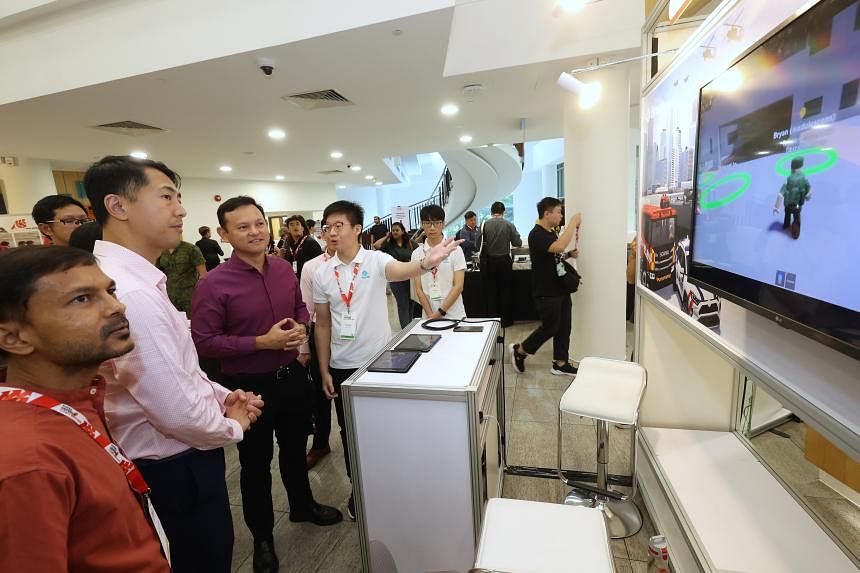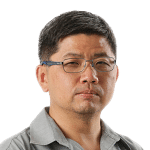SINGAPORE - Total Defence cannot remain a static concept and must adapt to new challenges and threats, as Singapore’s unity may be tested by the geopolitical environment, Senior Minister of State for Defence Zaqy Mohamad said.
Total Defence is the concept that the defence of the country involves every Singaporean playing a part, individually and collectively, to build a strong, secure and cohesive nation.
Mr Zaqy was delivering the keynote address at the inaugural Total Defence Convention on April 25 in conjunction with the 40th anniversary of Total Defence.
He said the theme of the convention – Building Societal Resilience and Readiness in Crises and Disruptions – was a reminder that Total Defence is not just about crisis response, but also about consistently building up the Republic’s resilience and readiness.
“This must be cultivated over time, even as we enjoy peace and stability here in Singapore,” he added.
Mr Lim Siong Guan, who introduced Total Defence in 1984 while he was head of the civil service and permanent secretary (defence), said at the convention that, of the six pillars of Total Defence, he considers psychological defence the most important one, as Singaporeans must have the will to defend the country using the instruments and capabilities available.
The other pillars are military, civil, economic, social and digital defence.
He suggested that there must be regular reviews of how Total Defence can be kept relevant for successive generations, using events around the world to show how the concept is applicable back home.
“If you want people to have the sense of determination, or resilience, or conviction of standing up for Singapore, you need to make Total Defence part of daily life, focusing upon things that are happening around the world,” he told reporters on the sidelines of the convention.
Speakers at the two plenary sessions at the convention included some from Sweden, New Zealand and Germany, as well as local speakers from different backgrounds. The recurring theme in their presentations was the need to build up a reservoir of public trust in public institutions that can be tapped in times of crisis.
Professor Kenneth Mak, the director-general of health at the Ministry of Health, noted that this was evident during the Covid-19 pandemic in other countries, where a lack of public trust meant the authorities had trouble persuading their populations to adopt measures like getting tested regularly or being vaccinated.
Echoing that sentiment was Ms Dawn Yip, the coordinating director of the Singapore Government Partnerships Office.
She told The Straits Times that the organisation was seeking to build trust and resilience by exploring different ways to get Singaporeans to be more engaged in governance, for example, by using citizens panels for consultation and feedback.
“Singaporeans have to commit a lot more time, a lot more of themselves to the exercise, but hopefully that increases the level of ownership and participation,” she said.
Nevertheless, there are still racial and religious fault lines that need to be bridged, said Mr Basil Kannangara, the founder of Singapore-based Being Bridges, a ground-up initiative that facilitates interfaith and interracial dialogue.
The organisation uses innovative methods such as card games to start conversations and virtual reality visits of houses of worship.
Mr Tor-Bjorn Astrand, the head of capability development at the Swedish Psychological Defence Agency, told ST that his agency’s primary focus was dealing with information manipulation by other countries and disinformation aimed at disrupting the country’s policymaking processes.
He said they primarily originated from Russia, and it has increased following its annexation of Crimea and the seizure of parts of eastern Ukraine in 2014.
Sweden is one of the models on which Singapore’s Total Defence has been based upon. The Scandinavian country is a pioneer in this concept because invasion from the then Soviet Union was a constant threat during the Cold War.
The convention was jointly organised by Nexus and the National University of Singapore, and was held at the university’s Shaw Foundation Alumni House.
Correction note: In an earlier version of the story, we said that Mr Basil Kannangara is Sri Lankan. This has been corrected.


